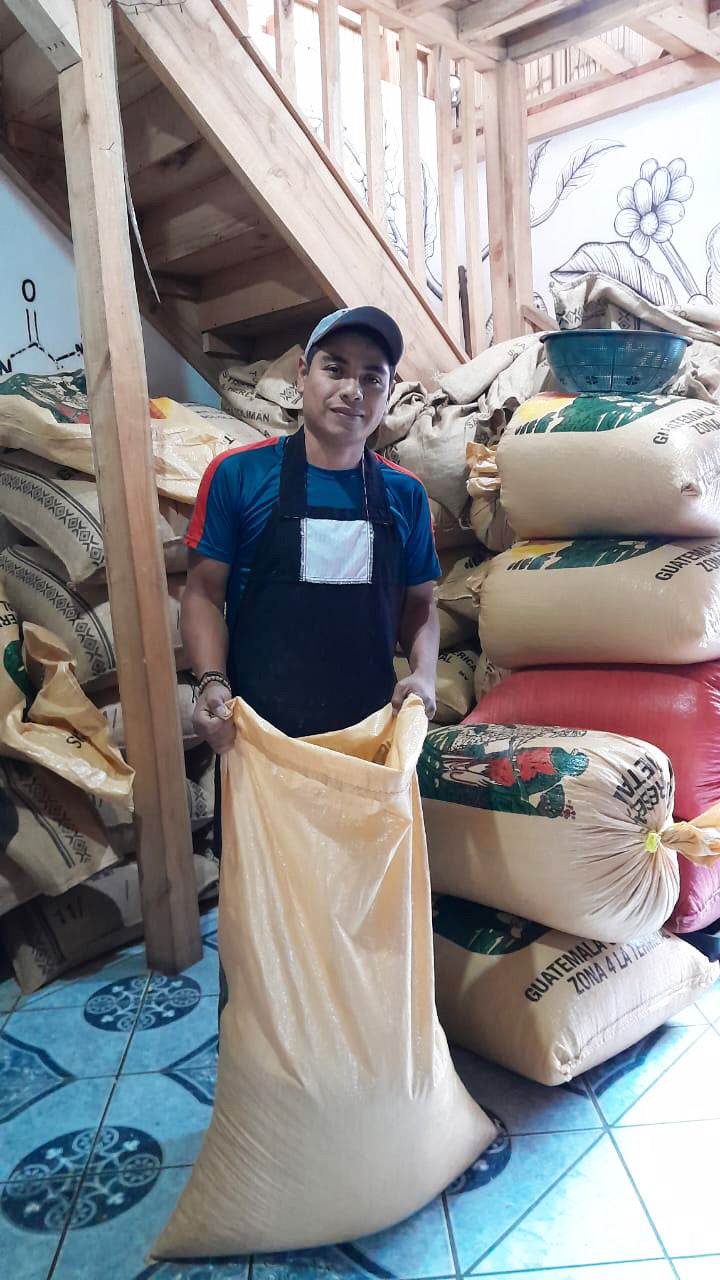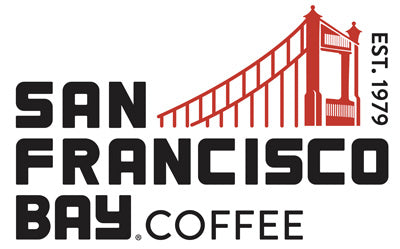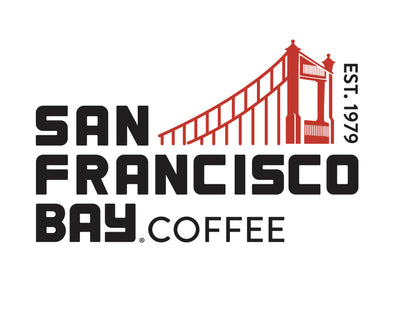MEET OUR FARMERS
Our Meet Our Farmers series provides a glimpse into the history, legacy and dedication of the farming families whom we partner with. When you purchase San Francisco Bay Coffee, you are joining our efforts to improve the lives of our farmers and those in their communities around the world.
Esdras Cumes, Guatemala

Esdras Cumes, coffee farm owner and General Manager of the Cooperativa Tinamit, Lago de Atitlan, Guatemala
Guatemala is known the world over for its incomparable organic coffee varietals. High altitudes, mineral-rich and well-draining volcanic soil, and a temperate year-round climate combine to create the perfect conditions for coffee production. Five of Guatemala’s eight producing regions are volcanic in nature, and out of these, the soil around the area of Lake Atitlan in the southwest Solala District is considered the richest. It produces aromatic beans with bright citrus acidity and full body. It’s here that Esdras Cumes grows coffee on his small farm located near Toliman’s Volcano in the forests surrounding Lake Atitlan.
In 2017, a small group of coffee producers in this region, searching for better opportunities and focused on developing better markets for their coffees, came together to form the Tinamit Cooperative. Ten female and 20 male coffee farmers constituted the founding members. Esdras got involved with the group as a young coffee producer with lots of energy and a dedicated focus, working his way up to leading the Co-op, then President of the Board, and now as General Manager. He has even reached out to other members of his family to be a part of the Co-op. His brother now participates as a small coffee producer there as well.

From left to right: Tinamit Cooperative General Manager Esdras Cumes; San Francisco Bay Coffee Q-Grader, Carlos Serrano; employees of Tinamit's coffee shop in Atitlan and San Francisco Bay Coffee's Guatemala Representative, Alejandro Flores.
Esdras employs two temporary workers to help with the many duties on his farm. During harvest, which he just completed, he adds five more members to his team. Since the town of San Lucas Toliman is so nearby, he doesn’t need to house any of his auxiliary employees. The crop is completely hand-picked, choosing only the reddest cherries that weigh more and will give the best acidity and sweetness to the brewed cup. Now that the harvest has been completed, the team shifts its focus to pruning the existing plants in order to renew the branches for next season’s crop.
San Francisco Bay Coffee receives four varieties of coffee from Esdras: Caturra (a well-balanced blend of sweetness and acidity), Catuai (mostly known for notes of chocolate and spices), Pache (a mutation of Typica with overtones of vanilla, wood and caramel), and Bourbon (deep, buttery chocolate flavors and fruit notes). A great many of these varietals are highly susceptible to coffee rust, a fungus that forms on the leaves of coffee plants causing defoliation, which inevitably weakens the tree and stops bean-producing cherries from growing next season. To help farmers like Esdras, the Rogers family began The Rust Trust back in 2014 to counter the effects of rust damage. The Rogers Charitable Foundation donates healthy plants and provides continuing education to growers throughout the coffee-producing world so that they can properly care for their new plants and ensure that they grow to become as productive as possible.

Esdras says that family farms throughout the Atitlan region are improving thanks to the prices they can achieve by San Francisco Bay Coffee’s presence. For instance, the last three harvests have been very successful, and as a result, many coffee producers have chosen to sell their coffee directly from the field. Their product never makes it to the co-op which greatly affects the prices for other growers in the local market. As San Francisco Bay Coffee began to purchase coffee in the area, the local market course-corrected, and companies began paying a more competitive price. Acquiring local labor is also always a challenge, and the rate of seasonal workers migrating to the U.S. increases yearly.

Local growers, including Esdras, have lots of plans and goals for the future. The members of Cooperativa Tinamit look forward to developing stronger production strategies and getting their products into better markets for better prices. This will mean better opportunities for Edras, his family, and the many families who do this work through the Co-op. The members have established their own wet mill (where the bean is separated from the fruit) and created the best coffee shop in town – Cafe Tinamit. Esdras is proud of all the producers who work together in the Co-op, building upon what they grow year after year.



